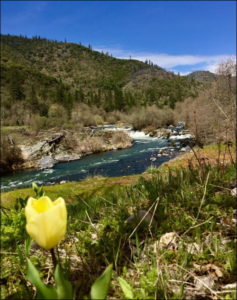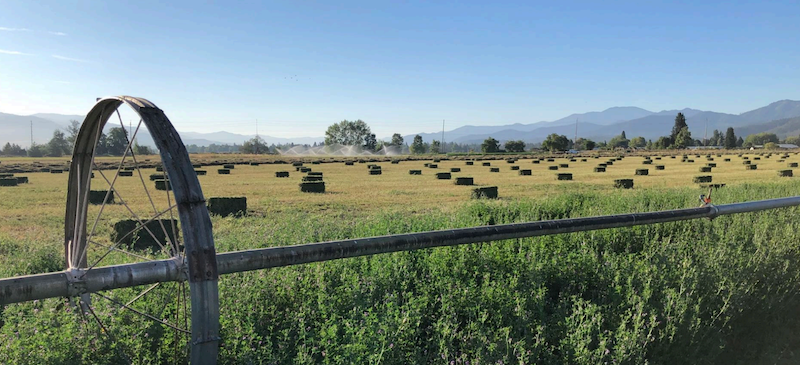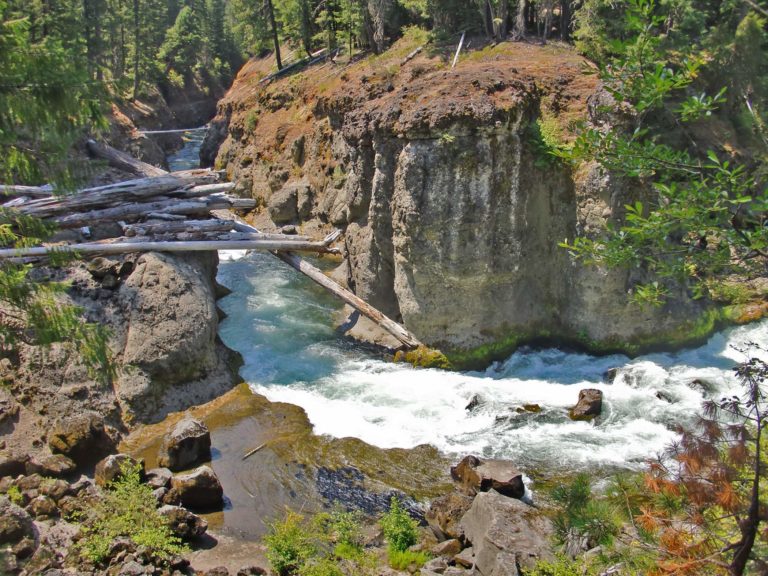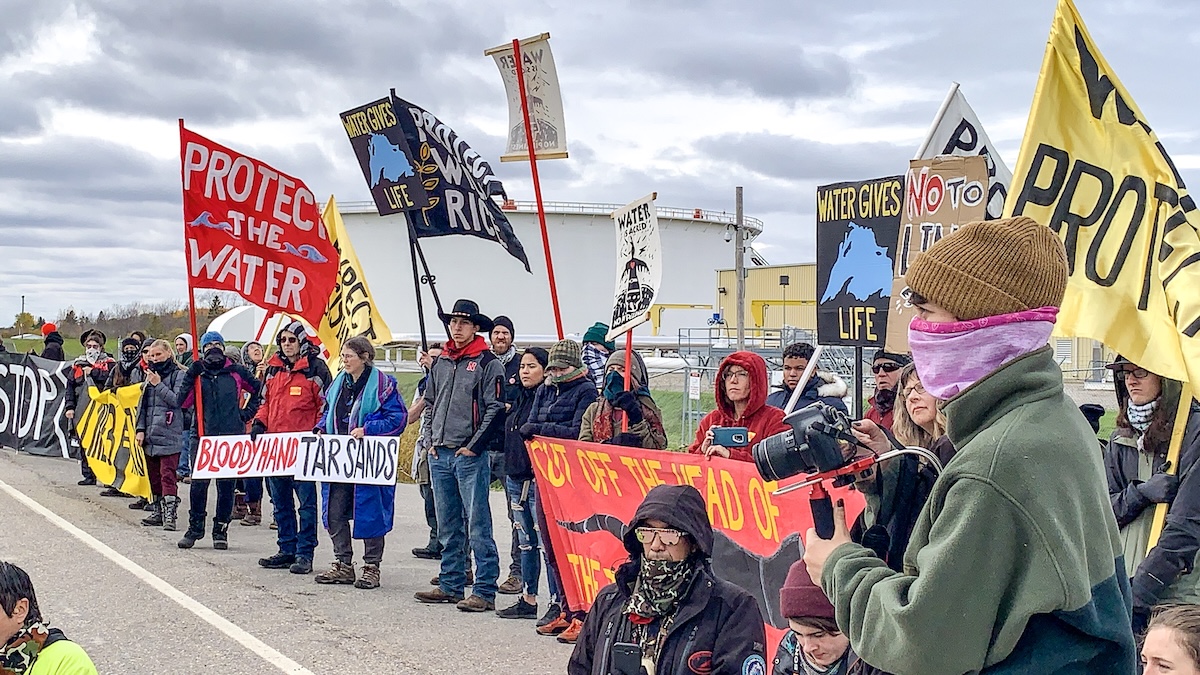By Kerul Dyer
Whether you “clean it up, be the beaver, or engage in the conversation,” there’s a role for everyone when it comes to conserving and restoring water systems in the Rogue River Watershed. That’s according to panelists from the first Rogue Valley Water Solutions Summit session, “Honoring Water,” held on Zoom Wednesday evening.
More than 80 local residents participated in the dialogue, hosted by Southern Oregon Pachamama Alliance (SOPA) and several local partners. Event organizers invite anyone who missed last night’s session to register for the remaining five events, which promise to dig into issues and possibilities for more equitable and sustainable water management in our region.
The first session began with an appropriate land acknowledgement, which recognized the original Peoples of the Rogue Valley, who remain displaced since their forceful removal by settlers and were denied their rights to self-determination.

“We are on the land of the Shasta, Takelma, Latgawa, and many other recognized and unrecognized tribes who have living relationships with the Southern Oregon region from ‘time out of mind’ to now,” said Lauren Oliver, of SOPA. That message was followed by a blessing by Tanya Nevarez, a Yurok and Siletz Nation Tribal descendant and granddaughter of Grandma Agnes Baker Pilgrim. Following the prayer, a video of Grandma Agnes reminding people to thank the water was played to the group. You can view a talk by the late Agnes Pilgrim titled, “We are All Water Babies,” here.
David West, director Emeritus of Native American Studies SOU and longtime advocate for water and cultural restoration, offered stories about the source springs of the Rogue and Klamath river systems, including Big Butte Spring, the principal source of water for Medford. He helped participants learn about water connectivity from the high country to the coast, known as the Klamath Knot.
“The Klamath Knot spans from the west side of the Cascades to the coast, from Diamond Lake up north near Roseburg to the south in California. It includes the Umpqua, Rogue, and Klamath Rivers, and all of their feeder streams,” he said. David West made a simple but profound suggestion that we all need to help “clean it up” by removing pollution sources like trash and cigarette butts near water sources.
Dan Wahpepah, founder of Red Earth Descendants and teacher of Traditional Ecological Knowledge and permaculture also spoke. He contributed to the discussion by layering together water-related stories from Indigenous cultures, including the Lakota Sioux. His message to participants, to “be the beaver” included specific recommendations to help restore water to depleted streams and springs, by returning water to the soil, through the creation of swales and ponds.
Justin Dillon, the Northwest Regional Director for Oregon’s Water Resources Department, presented a clear layout of the governing authorities charged with managing the surface and groundwater in Oregon, and explained basic tenets of legal water rights to the group. His recommendation, to “engage in the conversation,” included an invitation to an upcoming groundwater allocation listening session, to be held online and in person in Central Point October 5.

Paul Sheldon, the president of Emerging Futures, was the final panelist for Wednesday’s water summit. His presentation included a two part message, that the “river runs through us,” in reference to the fact that much of the water in Bear Creek flows through the Ashland sewage treatment plant before entering the waterway. He also pointed out that residential water use is minimal in comparison to agricultural and industrial uses. He continued to clarify, “if residential use were 50 or even 75 percent more efficient, it would not make a significant impact on valley-wide water use.” He said that the real opportunities for increasing water efficiency “are in ag, commercial, and landscape uses.”
 Several efforts in the Rogue Valley already support the concept of “be the beaver,” including the work of Vesper Meadows Restoration Project. The group coordinates hands-on restoration efforts on a 900-acre meadow and surrounding forest, after more than a century of settler colonialism has degraded the area, in headwaters for the Rogue and Klamath Rivers. Vesper Meadows is a member of the Beaver Coalition, and recognizes on their website that “beaver trapping stripped the area of its native caretaker, and the streams began to simplify. With 20th century farming practices came the building of water diversions that further straightened, channelized, and downcut Latgawa Creek.” The Beaver Coalition offers a Beaver Restoration Guidebook available for free download on their website.
Several efforts in the Rogue Valley already support the concept of “be the beaver,” including the work of Vesper Meadows Restoration Project. The group coordinates hands-on restoration efforts on a 900-acre meadow and surrounding forest, after more than a century of settler colonialism has degraded the area, in headwaters for the Rogue and Klamath Rivers. Vesper Meadows is a member of the Beaver Coalition, and recognizes on their website that “beaver trapping stripped the area of its native caretaker, and the streams began to simplify. With 20th century farming practices came the building of water diversions that further straightened, channelized, and downcut Latgawa Creek.” The Beaver Coalition offers a Beaver Restoration Guidebook available for free download on their website.
You can join Vesper Meadow and The Beaver Coalition to ‘behave like beavers’ and implement their “biggest single push for Latgawa Creek restoration yet,” from October 13 to 18th. Learn more on their website.
In addition to taking time to “clean it up,” David West’s recommendation that we can pick up garbage and clean up pollution along streams and rivers, you can also take action with neighbors next week. Bear Creek Stewards, an organization of the cities of Jackson County and local groups, will host their annual Bear Creek Stewardship Day to help clean up along Bear Creek and the Bear Creek Greenway September 24. Participants will be “removing litter and debris in addition to invasive plant removal and gardening maintenance tasks along Bear Creek and the Bear Creek Greenway from Central Point to Ashland.” Learn more by visiting bearcreekstewards.org.
To learn more and register for the remaining sessions of Rogue Valley Water Solutions Summit, visit Southern Oregon Pachamama Alliance’s summit webpage, here. Peace House is the fiscal sponsor of the Water Solutions Summit and SOPA.


